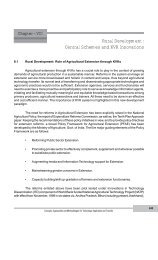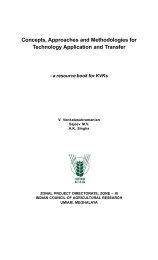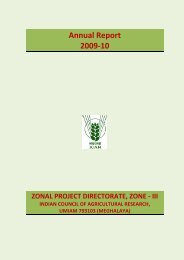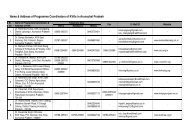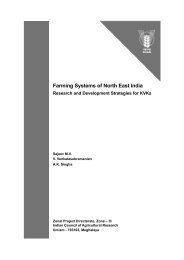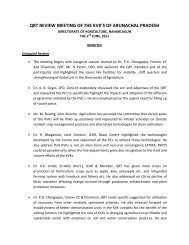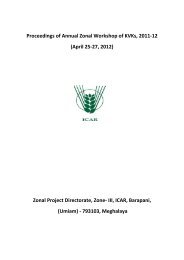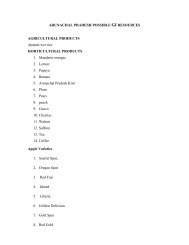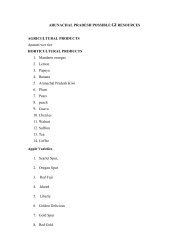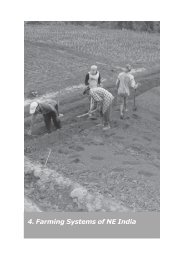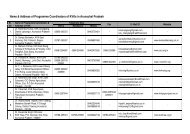Training Methodology for KVK Scientists - ICAR, Zonal Project ...
Training Methodology for KVK Scientists - ICAR, Zonal Project ...
Training Methodology for KVK Scientists - ICAR, Zonal Project ...
Create successful ePaper yourself
Turn your PDF publications into a flip-book with our unique Google optimized e-Paper software.
V<br />
V. Venkatasubramanian, Sajeev, M.V. & A.K. Singha.<br />
7. Provides challenging and satisfying learning opportunities.<br />
8. Should be meaningful and stimulative.<br />
9. Based on successive rein<strong>for</strong>cement and interactive method.<br />
10. Individuals differ in their leaning ability and the <strong>KVK</strong> trainer should facilitate the learning.<br />
5.7.3 Pedagogy and Andragogy<br />
The term pedagogy means the science of teaching children. Andragogy refers to the science<br />
of teaching adults. Pedagogy and Andragogy differs in terms of their objectives, curriculum, methods,<br />
orientation, teacher role and evaluation. The basic psychological differences between a child learner<br />
and adult learner are mainly responsible <strong>for</strong> the differences that arise between the adult and child<br />
learning process. According to Knowles (1993), the child and adult learners differ in terms of their<br />
self concept, experience, readiness to learn, leaning orientation and motivation <strong>for</strong> learning.<br />
5.8 Characteristics of a <strong>KVK</strong> Trainee<br />
The <strong>KVK</strong> trainees are self directed individuals, have greater volume and quality of<br />
experience. They are problem or life centered and ready to learn according to their perception of<br />
developmental needs. They are motivated both by extrinsic and intrinsic rewards.<br />
5.8.1 Characteristics of <strong>KVK</strong> Trainee Learning<br />
The striking features of <strong>KVK</strong> trainee learning in terms of their goals, objectives, contents,<br />
methodology and evaluation have been summarized below:<br />
1. Goals and Objectives: To help trainees to achieve their human potential<br />
2. Contents: <strong>KVK</strong> trainee learning is Problem centered, Selection of contents based on<br />
their needs.<br />
3. Control: <strong>KVK</strong> scientist has very less control over learning outcome of a farmer.<br />
4. Method: <strong>KVK</strong> trainee learning is facilitative.<br />
108<br />
Concepts, Approaches and Methodologies <strong>for</strong> Technology Application and Transfer



